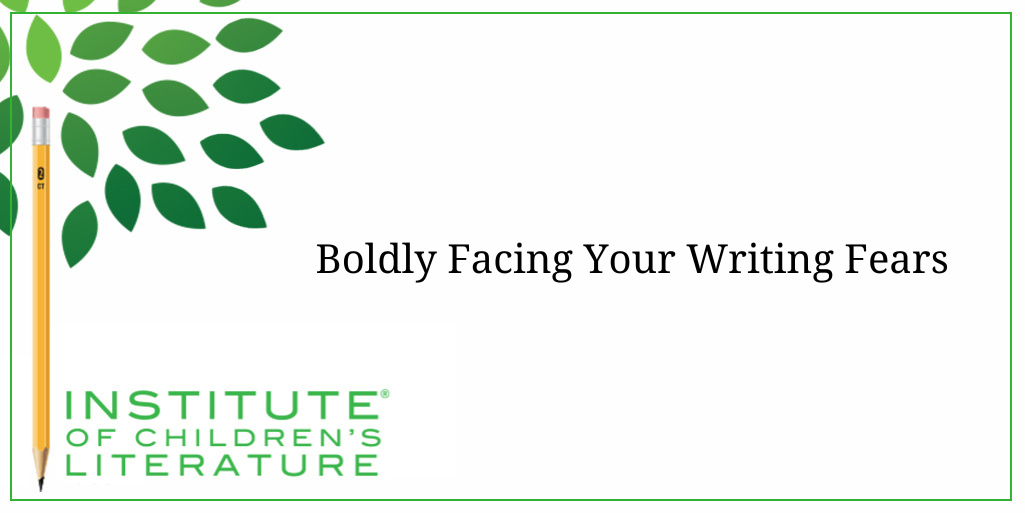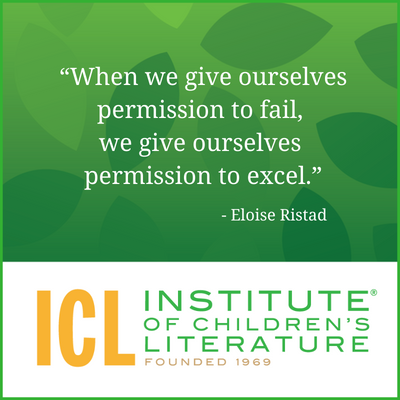
5 Ways Writers Can Prep for 2025 Goal Setting
Before we roll on to the new writing year, let’s harness our optimism for the blank slate before us and prepare for our 2025 Goal Setting just for writers.

We teach our students how to write and get published!
View our Course Catalog >
Sometimes it’s hard to say yes to new opportunities and new challenges. Part of the problem can be fear. Anytime you try something new, you could fail. And part of the problem is making room for yourself. Giving yourself permission to invest time and energy and maybe even money into trying or learning or pursuing something new can be a challenge. Both of these writing fears can be daunting, but they aren’t insurmountable, though they may take a little trickery.
Fear is a difficult obstacle to overcome and writing comes with tons of it. We fear not being good enough. We fear not ever getting published. We fear we’re missing the one thing that is making everyone else successful and we don’t even know what it is. And once we do get published, our writing fears start spinning again when we wonder if we’ll manage to do it again. And just getting a book deal doesn’t even squash the fear monster. We fear not being able to meet deadlines or ending up with a book that doesn’t sell. There are so many ways for things to go wrong and each comes with its own packet of fears.

Sometimes when the going gets tough, some folks get pessimistic over the whole thing and announce that there is no way to get published unless you have an “in.” Or, they complain that the whole industry is some monolith set up to squash those trying to get published. The reality is that there are many ways to get in, and there are even side roads if you do decide that your project is viable but needs to go its own way (self-publishing might be one of these ways, though it should be considered only if it has a solid chance of success for your project.)
Because we do tend to be a tad fearful, it can be hard to push forward and try new things. But research shows that the better we’re prepared, the less fearful we are. Take one of the most common crippling fears people have: fear of public speaking. Research shows that the more a speaker is prepared through practice and familiarity with the coming event, the fewer fears the speaker faces. This is another good argument for putting some of your time and effort into preparation. In other words, learning can be as important as writing.
Some learning we can do totally on our own. We can read piles and piles of published books and that will help us internalize things like plot and characterization and pacing, even without the active study of these specific elements. We can read books about writing as there are many good ones out there. And as we do these things, we can begin to narrow our scope of study and follow the passions that blossom in us as we read. We might decide we want to know more about fantasy writing and thus seek out a workshop on it. Or we might decide we want to really understand how plot works and how writers are doing the magic of turning an idea into a story and take actual writing classes. With the pandemic, the number of ways to learn without ever leaving our homes has grown. We can find a writing class or workshop, big or small, focused or all-encompassing, that will help us be prepared. The more we know, the less we’ll come to fear our own inadequacies.
One thing I’ve always done with fear of public speaking is to simply rename the sensations and call them excitement. The actual physical symptoms of fear vs. excitement aren’t that different. What’s different is what we’re telling ourselves while it happens. For instance, plummeting down from a great height is terrifying, but if we do it on a rollercoaster or with a parachute strapped to our backs, we reinterpreted those sensations as an exciting adrenaline rush. We trick ourselves into loving the fear and even seeking it out. So maybe we’re not scared of the challenges ahead on our writing journey, maybe we’re excited.
These days, I tend to pile up deadlines in stacks as I work to make enough to take care of my family (in New England no less). I need all those deadlines if I’m going to have enough income, but I live very close to the edge on timing. And that can lead to stress and fear because missing one could result in a cascade of problems. That could be scary or exciting. And I have to admit, I’ve convinced myself it’s exciting and now really couldn’t imagine doing anything different. I like the Jenga tower that is my writing life.
What kind of writing fears are you facing? How could you use preparation to whittle them down, then reinterpreting to turn that fear into energy to succeed?
For some of us, the problem isn’t fear. In fact, sometimes the problem is responsibility. I was always one of those kids who’d be willing to take responsibility (and thus guilt) for absolutely anything. I spent more time apologizing than any Canadian you could imagine. And being so incredibly responsible made it difficult to give myself permission to need the things I needed.
There are so many things I need to do for my family, can I really justify taking a writing course, going to a writing conference, or attending a writing workshop? Can I justify the money spent to attend a one-night writing zoom? Or even the money to buy more writing books or try out some writing software? All of those things were far harder for me to do than simply overcoming fears. I could do fear, but irresponsibility — shudder!
A part of me kept waiting for the people around me to cheer on my efforts and suggest I go ahead and travel to a writing retreat or buy more books. And that wasn’t going to happen. It wasn’t that the people around me didn’t love me or weren’t supportive, but my situation was so different and they didn’t “get” it. Change wasn’t going to happen unless I changed it.
So I began saying “yes” to the things I needed to do to improve my writing situation. Not all of them paid off. The writing retreat didn’t end in a book contract, but it did end in some contacts that I value to this day. The books helped me to think through my understanding of what I do and how I do it. They made me a better writer and a better writing teacher, but I really couldn’t say there was a direct line between buying them and making money. I couldn’t justify these expenditures of time and money.
And I suddenly realized, I didn’t have to.
I wouldn’t have asked for that level of justification from my husband or my daughter. It would be enough that it would give them joy and let them spend time pursuing their passion. So I gave myself permission and gave myself support, just as I would have given them. And overall, all these different things I’ve done have produced huge rewards. I’ve met writers who later recommended me for work. I’ve developed a reputation, partially because of the connections I’ve made. And I’ve come to understand writing much more deeply, though I’m far from done learning there.
As I give myself permission to try new things, even when it requires an investment of time or money, I grow as a writer and become more successful. And with the passage of time, I have come to be able to trace back connections and realize, yes, that’s where this thread started. It started with this event I gave myself permission to attend. But in the moment, I went to the event with a whole different goal, one that didn’t pay off. Sometimes the thing you thought you’d get isn’t the thing you actually get. And that can be a good thing. In my case, a very good thing indeed.
Don’t let the obstacles keep you from trying. You can get over them. Sure, you’ll fall, you’ll pick up some bruises and you’ll almost certainly get incredibly frustrated sometimes, but if you keep trying, you will get over them. And where you end up may not look a lot like where you thought you’d end up, but it’ll be marvelous. Of that, I am sure.
If you don’t give up, you’ll get over the obstacles and past the writing fears.
Be dauntless. Be bold. The rewards are worth it.
With over 100 books in publication, Jan Fields writes both chapter books for children and mystery novels for adults. She’s also known for a variety of experiences teaching writing, from one session SCBWI events to lengthier Highlights Foundation workshops to these blog posts for the Institute of Children’s Literature. As a former ICL instructor, Jan enjoys equipping writers for success in whatever way she can.

Before we roll on to the new writing year, let’s harness our optimism for the blank slate before us and prepare for our 2025 Goal Setting just for writers.

Writers can be thin-skinned when it comes to getting feedback on their work. Let’s look at 4 ways to positively deal with constructive criticism!

Rejection is part of the territory when it comes to being a writer. Today we offer reflection for writers to help redirect your efforts after a rejection.
1000 N. West Street #1200, Wilmington, DE 19801
© 2024 Direct Learning Systems, Inc. All rights reserved.
1000 N. West Street #1200, Wilmington, DE 19801
© 2024 Direct Learning Systems, Inc. All rights reserved.
1000 N. West Street #1200, Wilmington, DE 19801
© 2024 Direct Learning Systems, Inc. All rights reserved.
1000 N. West Street #1200, Wilmington, DE 19801
© 2024 Direct Learning Systems, Inc. All rights reserved.

1000 N. West Street #1200, Wilmington, DE 19801
© 2025 Direct Learning Systems, Inc. All rights reserved.

1000 N. West Street #1200, Wilmington, DE 19801
©2025 Direct Learning Systems, Inc. All rights reserved. Privacy Policy.
5 Comments
Thanks for the inspiring message, Jan!
Glad you enjoyed it. Thanks for YOUR encouraging message.